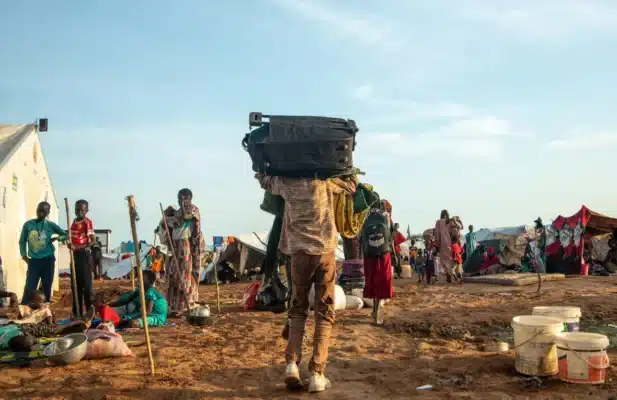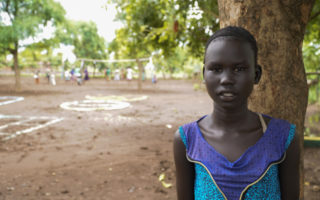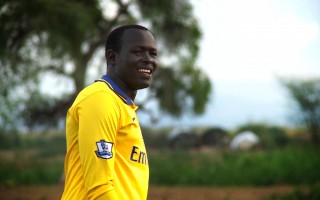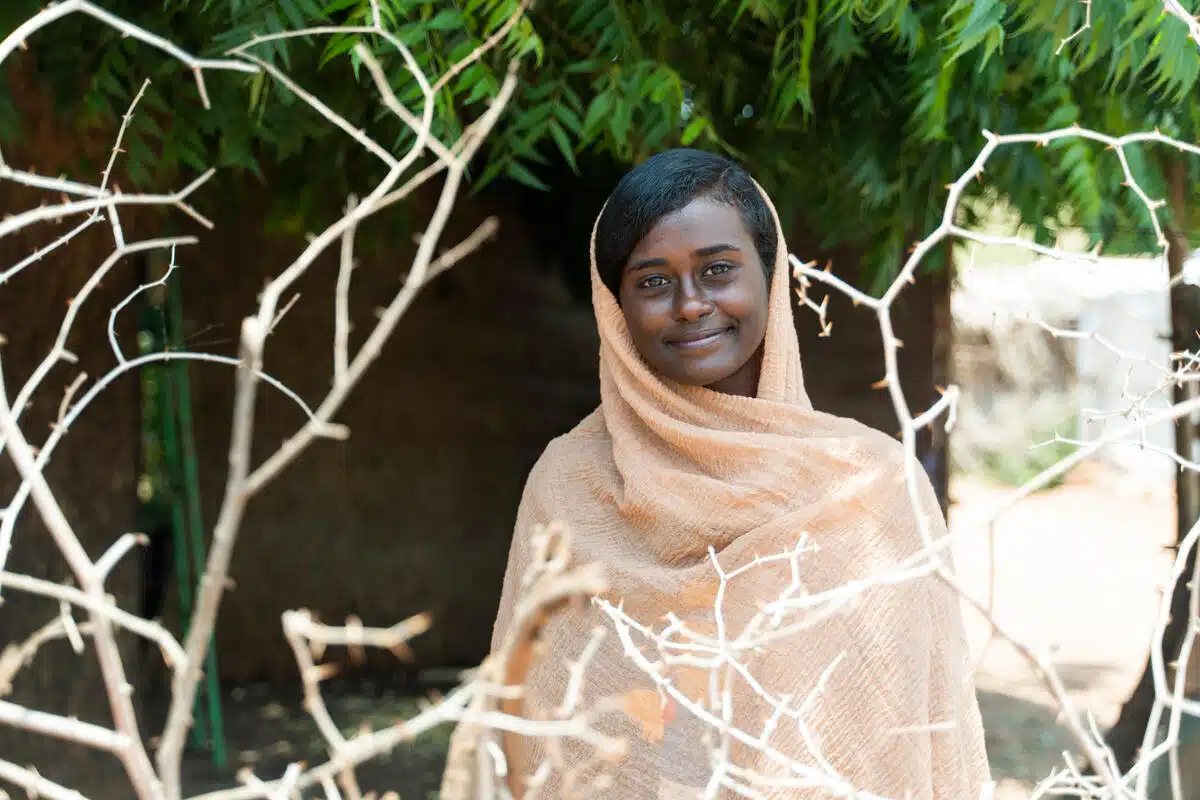
Islam Mubarak, an internally displaced Sudanese student, stands outside her grandmother’s home in Um Rakuba camp, Gedaref State, Sudan. © UNHCR/Ala Kheir
Islam Mubarak was uprooted from her life in Khartoum by the war in Sudan. Now she is stuck in a camp for displaced people in the east of the country.
By Omer Elnaiem in Gedaref, Sudan
Just days before fighting between two rival military factions broke out in Khartoum in April 2023, 21-year-old Islam Mubarak had travelled from the Sudanese capital to Gedaref State to visit her grandmother. Eight months on, she is still stuck there, their life “on hold”.
“At the moment, the future is something I cannot see or something I cannot express; it disappeared,” she said. “But if you asked me before, I could tell you what the future is: I will complete my studies, I will go to Korea and meet BTS.”
Like many young people around world, Islam became obsessed with the popular seven-member boy band from South Korea after a friend told her about them.
“Her name is Thowaiba, she loved BTS … she used to wear their t-shirts and do their styles and I was like ‘What is this? Are you crazy?’.”
After doing a Google search, she found that the band’s story and the themes of their songs resonated with her.
“I can compare it to my life in a small way because they also went through hardship until they became famous,” she said. “They pushed themselves to learn to speak English and this is something that links me to them.”
Before the war, Islam was studying English Literature at Sudan University and working part-time at a perfume shop. In early April, her employer gave her a week off during Ramadan to travel to Gedaref with her mother.
“We came on Thursday, 13 April, and the troubles started on Saturday,” she said. “I never thought I would be [staying on] with my mom, so I did not say goodbye to so many people. I did not tell them that I was going.”
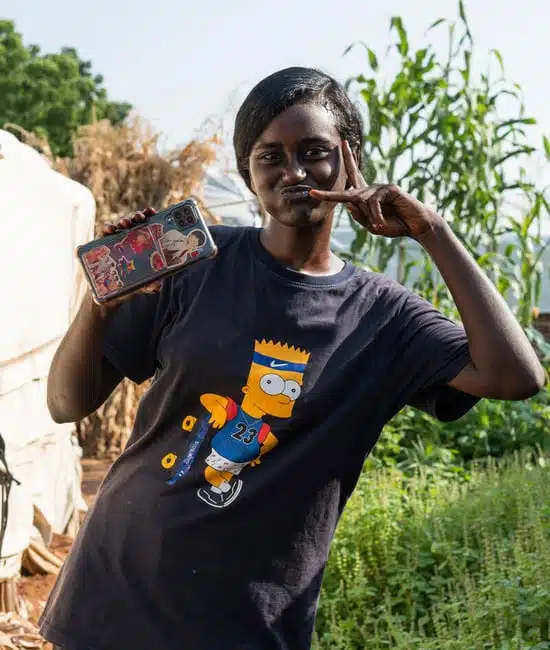
Islam poses with pictures of BTS on her mobile phone case. © UNHCR/Ala Kheir
Now, she said, her friends’ phones are switched off and she can no longer follow her favourite BTS band member, Jungkook, on social media. “Our life in Khartoum was beautiful … But Gedaref, it is a place I don’t know. An environment that I did not live in,” she said.
“I keep feeling that this is a dream, and I will wake up tomorrow to find myself at home and I will get ready quickly to go to university.”
Islam is among more than 7 million people who have been forced from their homes by the Sudan conflict. Many are still grieving the loss of their loved ones or looking for family members they were separated from.
Uprooted from their normal lives, the majority are scattered in displacement camps across the country, depending on aid and the generosity of fellow Sudanese who have also been affected by the crisis. More than 1 million have fled to neighbouring countries where they are staying in refugee camps or temporary sites near borders.
“The conditions of the [people]here are very difficult, it is hard to express it,” said Islam about Um Rakuba camp where she now lives with her grandmother. “Previously in Khartoum, I could go out from 8 p.m. and return at 1 a.m., or go to work and come home at 11 p.m. Here, I can’t leave home…”
Dire situation
Far from moving towards a peaceful resolution, the conflict in Sudan is escalating with recent fighting in Al Jazirah State pushing hundreds of thousands more people from their homes. The violence has now reached Wad Madani, the state capital, which hosts over half a million displaced people, including 7,000 refugees, who fled there from Khartoum at the start of the conflict. Many of those displaced for the first or second time are now arriving in Gedaref State.
In a recent statement, UNHCR, the UN Refugee Agency, described the humanitarian situation in Sudan as dire and expressed concern that the fighting could spread further to other parts of the country.
Islam now volunteers at a local women’s centre which is run by AlightLink is external. “Women come together to talk about issues that affect their lives, such as gender-based violence and how to support each other,” she said. “These people were so kind to me so why not help them.”
Islam remains hopeful that the war will end, and she will go back to Khartoum, continue her studies and “return to our old life.”
“I wish to meet Jungkook and take a photo with him. I feel that things will get better for me and, no problem, we can wait a little longer before going back to Khartoum.”
Additional reporting by Moulid Hujale in Nairobi, Kenya
Originally published by UNHCR on 26 January 2024



